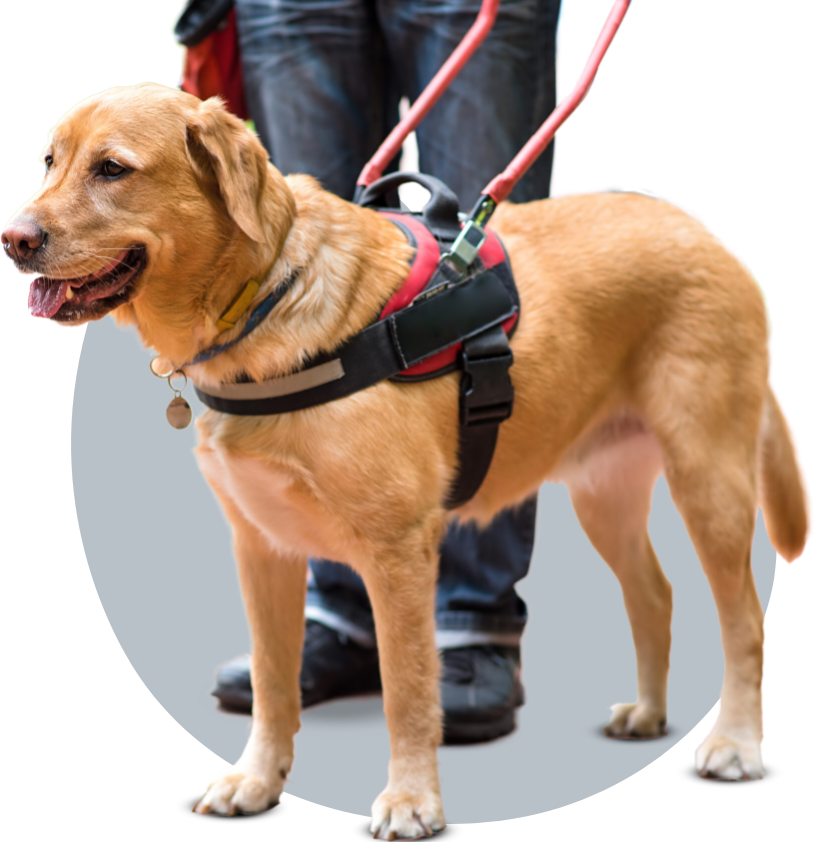Guide Service Dogs: Navigating Life

Guide Service Dogs play a vital role in assisting individuals who are blind or visually impaired by guiding them through various environments, ensuring their safety and independence. In this guide, we will delve into the definition of Guide Service Dogs, explore ideal breeds for this specialized task, outline the tasks they are trained to perform, discuss training methodologies, offer troubleshooting tips, and provide maintenance training advice.
Understanding Guide Service Dogs
Guide Service Dogs, also known as seeing-eye dogs, are specially trained to assist individuals who are blind or visually impaired in navigating their surroundings safely. These highly trained canines serve as indispensable companions, providing both physical assistance and emotional support to their handlers.
Ideal Breeds for Guide Service Dogs
When considering breeds for Guide Service Dogs, temperament and physical attributes are crucial factors. Breeds such as Labrador Retrievers, Golden Retrievers, and German Shepherds are commonly chosen for their intelligence, trainability, and gentle demeanor. These breeds typically exhibit the qualities necessary for successful guide work, including loyalty, confidence, and adaptability to various environments.
Training Methodologies for Guide Service Dogs
Training a Guide Service Dog requires patience, consistency, and a deep understanding of positive reinforcement techniques. Positive reinforcement, which involves rewarding desired behaviors with treats or praise, is the cornerstone of guide dog training. Clicker training, a form of operant conditioning, is also commonly used to reinforce specific behaviors and signal to the dog when they have performed correctly.
Step-by-Step Guide to Tasks
1. Navigating Around Obstacles
- Begin by teaching the dog to recognize and navigate around obstacles such as curbs, stairs, and obstacles.
- Use positive reinforcement to encourage the dog to stop at obstacles and wait for guidance.
- Gradually increase the complexity of the obstacles and provide consistent feedback.
2. Navigating Through Various Environments
- Introduce the dog to various environments, including busy streets, crowded areas, and public transportation.
- Use positive reinforcement to reinforce appropriate behaviors in each environment.
- Practice navigating through different environments regularly to build the dog’s confidence and proficiency.
Troubleshooting Tips
- If the dog becomes distracted or loses focus, take a break and try again later.
- Use high-value treats to regain the dog’s attention and motivation.
- Seek guidance from a professional trainer if you encounter persistent challenges.
Socialization and Acclimation
Socializing the dog to public spaces is essential for their success as a guide. Expose the dog to different sights, sounds, and smells from an early age to ensure they remain calm and focused in any environment.
Selecting the Right Dog
When selecting a dog for guide work, consider factors such as temperament, health, and trainability. Work with reputable breeders or guide dog organizations to find a dog with the potential to excel in this specialized role.

Maintenance Training Tips
To ensure the dog remains proficient in its tasks, incorporate maintenance training into your daily routine. Regular practice sessions and periodic reinforcement of skills will help keep the dog sharp and reliable in their duties.
Registering Your Guide Service Dog with National Service Animal Registry
Registering your Guide service dog with National Service Animal Registry (NSAR) offers numerous benefits to both you and your canine partner. NSAR provides a simple and free registration process that helps establish your dog’s status as a service animal, which can facilitate smoother access to public places and accommodations. Here’s why registering with NSAR is advantageous:
- Legitimacy: Registration with NSAR adds legitimacy to your Guide service dog’s status. With a registered service dog, you can confidently assert your rights under the Americans with Disabilities Act (ADA) when accessing public spaces, transportation, housing, and other areas where service animals are allowed.
- Identification: NSAR provides identification tools such as vests, ID cards, and other merchandise that clearly indicate your dog’s role as a service animal. These visual cues not only help others recognize your dog’s purpose but also signal your commitment to responsible ownership.
- Ease of Access: Having your Guide service dog registered with NSAR can streamline interactions with businesses, landlords, and transportation providers. Showing your registration documentation and identification products can help mitigate misunderstandings and ensure smoother access to the accommodations and services you need.
- Peace of Mind: Registering with NSAR offers peace of mind, knowing that you have official documentation and support to navigate situations where your service dog’s presence may be questioned. It provides a sense of security and empowerment as you go about your daily activities with your trusted companion by your side.
NSAR offers a range of registration options, including free basic registration and premium packages with additional benefits. Take advantage of NSAR’s services to register your Guide service dog today and enjoy the confidence and convenience that come with official recognition and identification.
Conclusion
Guide Service Dogs play a crucial role in enhancing the independence and mobility of individuals who are blind or visually impaired. Through careful selection, positive reinforcement training, and ongoing maintenance, these remarkable animals can provide invaluable support and companionship to their handlers. By following the guidelines outlined in this comprehensive guide, individuals interested in acquiring or training a Guide Service Dog can embark on a rewarding journey towards greater independence and freedom.
Brought to you by National Service Animal Registry. Learn more about us and how to qualify your pet as a service dog, emotional support animal (ESA), or therapy animal, TODAY!
















































